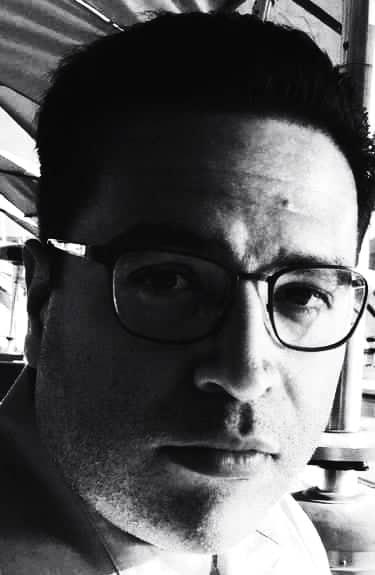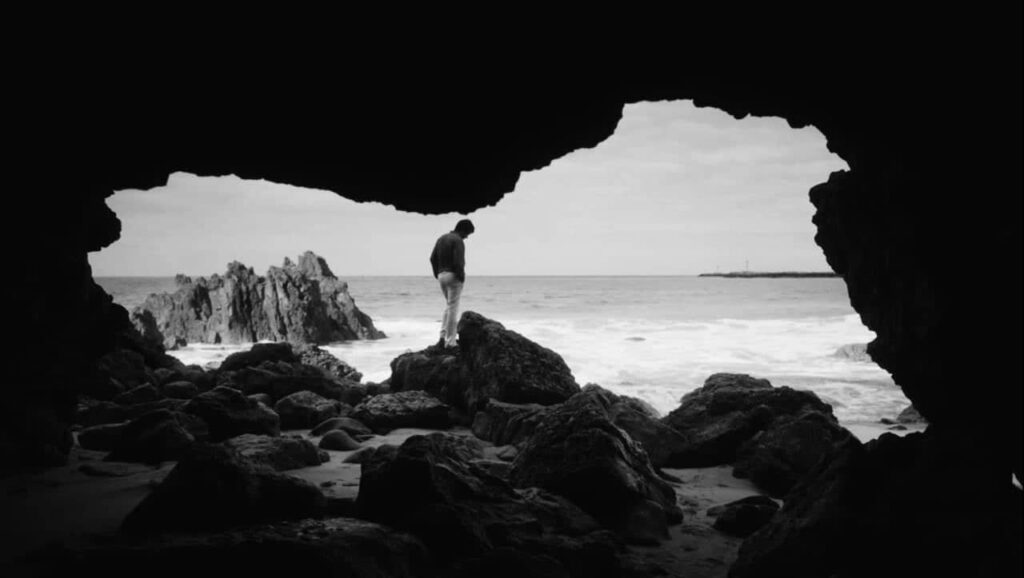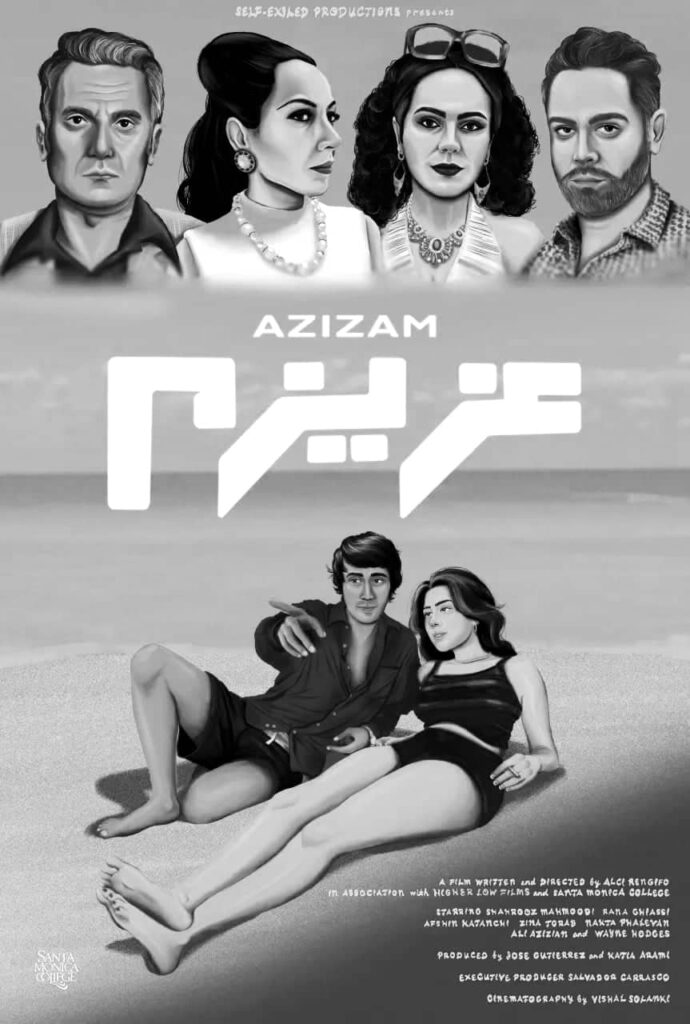
-Who is Alci Rengifo?
On a general level I am a film critic in Los Angeles who is Rotten
Tomatoes-approved. So much of my existence is spent in the darkness of
screening rooms. I also do screenwriting and have written multiple
shorts, pilots and a few features, some have come to life. Others are
yet to be made, as tends to happen in this city where everyone has a
screenplay. Aside from consuming cinema for work and pleasure, I am a
great devourer of books of any kind. The written word keeps me going
in good and darkening times. I am also the co-host of a podcast on
film history and criticism named Breaking the 180.
-What inspired you to become a filmmaker?
I was raised in a working class home with two immigrant parents with
unfulfilled artistic backgrounds. Because we could not afford the
privileges of constant travel, going to the movies was our prime form
of escape. Books and cinema have always provided a window to the world
and to the lives, dreams, nightmares and experiences of other human
beings, from any corner of the world, to me. From a very young age I
always felt the compulsion to tell stories and a drive to visualize
narratives. There is a movie in my memory for nearly every key phase
of my childhood and adolescence. When I was a teenager and discovered
directors like Luis Bunuel and Oliver Stone, I realized how
storytelling and cinema could be both enlightening but also dangerous.
The marriage of ideas and images can be as effective as poetry, even
in a good popcorn entertainment. From a pre-teen stage in my life I
wanted to learn how to do that because movies combine everything I
love including images, music, literature and history. I still consider
myself in a state of learning and have been lucky to find great guides
and mentors like Salvador Carrasco, director of the great Mexican film
The Other Conquest, who has provided the kind of education no film
school can match. He also runs a groundbreaking film program at Santa
Monica College which helped us with so much.

-Do you think the cinema can bring a change in the society?
It may sound naïve, but I do hold on to the spirit of my favorite
directors like Bunuel, Costa-Gavras or Rainer Werner Fassbinder in the
belief that movies can indeed provoke changes in society. The
Surrealists believed cinema could be revolutionary and in our time, I
see the potential is there because we now live in a world completely
dominated by images. We consume moving images every day on our
devices. People probably watch more YouTube than read books now. There
was a time when filmmakers like Pier Paolo Pasolini were both artists
and radical intellectuals. Now we have so much technologically
available to share ideas. Beyond politics, I believe the most
significant change or impact good movies can have is placing the
viewer in someone else’s shoes. A movie can help bring change when it
helps you see the world through the eyes of the other, especially in
these times when social and political conflict is growing. Azizam was
inspired by how most narratives about the ‘60s and ‘70s are dominated
by American or European stories in film and TV. We never get a chance
to see how the rest of the world was experiencing an era still
impacting us today. Iran is still in the news, yet few westerners know
the entire history. Or consider how many Americans know Italian
history from the ‘60s. I doubt many do.

-What would you change in the world?
Since I do not wield sufficient power to change the world, I can
safely be honest and say that I would wish for us as humans to dismiss
the artificial borders and boundaries we are always constructing.
Because I have a father from Colombia and a mother from El Salvador,
who left her country as it approached civil war, and I was born in the
United States, I have never felt comfortable waving around particular
nationalist, ethnic pride. It is true that we have a variety of
cultures, languages and other details specific to where we come from,
but in the end all humans feel desire, rage, love, joy and sorrow. The
beginning of real equality is by looking at someone from a different
background or society and seeing more how you are similar as opposed
to different. I speak from the experience of always feeling like an
outsider. I am far from perfect and so is everyone else, which is also
part of what makes us all beautifully human.
-Where do you see the film industry going in the next 100 years?
It is very hard to tell because the world seems to be changing at such
a quick pace. The pandemic has changed the theater system in the
United States irrevocably and streaming has now created a wider
panorama of options. New shows premiere by the dozens every week and
the cinemas now seem to cater exclusively to spectacle. On the
business side from what I see as an entertainment journalist, the
theaters will become precisely spectacle houses where people will pay
the ever growing ticket prices to see grand experiences worth their
money. There will still be small theaters showing international and
independent films, but the majority of those kinds of films will find
their audiences in streaming options like the Criterion Channel. A
century from now we will most likely see a complete fusion of the
virtual reality experience and film-viewing. You won’t just watch
Titanic. You will probably be able to feel as if you are standing
there on the ship looking at Leonardo Di Caprio and Kate Winslet.
Cinema will be a fully immersive experience in 100 years. That is, of
course, if we have not pushed civilization into terrible cataclysms.
But I remain positive at heart.

